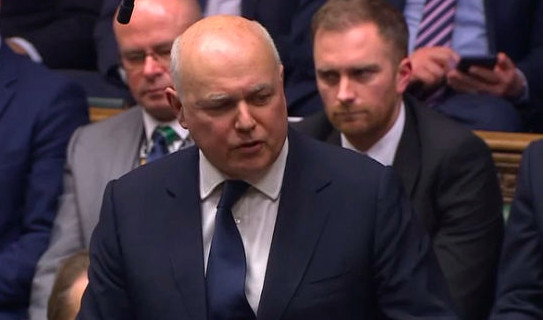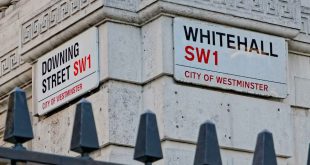Sir Iain Duncan Smith has described British gambling laws as some of ‘the most liberal in the world’, arguing that urgent change is needed on consumer protection.
Speaking to BBC for a recent feature on the White Paper were former Conservative Party leader, and Dr Mark Gaskell, Clinical Lead for the NHS Northern Gambling Service.
Both prominent supporters of change to the UK’s existing regulatory framework on gambling, which has not been updated since the government of Tony Blair back in 2005.
With the White Paper on the 2005 Gambling Act review apparently due after over two years in development and multiple delays, Duncan Smith told the BBC: “We’re not out to stamp out gambling. We want to have it better regulated so it traps fewer people in spirals of debt.”
Duncan Smith is one of the most prominent members of the All Party Parliamentary Group on Gambling Related Harm (APPG GRH), with other notable MPs being Carlone Harris of Labour and Ronnie Cowan of the SNP.
Throughout the duration of the review, the APPG GRH has called for a number of changes to current betting and gaming legislation, with the introduction of enhanced affordability checks and restrictions on marketing a common theme.
On the latter, the BBC reported that the Premier League is ‘likely to agree’ to a voluntary deal with the government, with front-of-shirt sponsorships often highlighted as an issue of concern.
Reports last year indicated that the English top-flight had secured some of its own terms to a sponsorship rollback, which would see front-of-shirt deals end but sleeve agreements remain, until an eventual full phase out is completed within a few years.
However, campaigners have kept up the pressure, such as calling on the EFL – the second to fourth tiers of English football – to blow the whistle on its deal with Sky Bet, something which some stakeholders believe could have negative financial consequences for lower division clubs.
Scepticism of these agreements has not deterred some Premier League clubs from entering into new homes, however, often to the chagrin of segments of their supporters, such as Everton and Aston Villa.
Meanwhile, on affordability checks, the BBC repeated statements from former Gambling Minister Paul Scully that a ‘a consultation is expected on the level at which these would kick in’.
Scully, who now works for the Department of Science, Innovation and Technology (SIT), asserted whilst serving as DCMS Gambling Minister that ‘financial risk checks’ was better terminology to use for the proposed measures.
He explained to the Betting and Gaming Council (BGC) AGM last month: “That word suggests that the government or Gambling Commission are going to set rules on how much people can ‘afford’ to gamble,” he explained.
“A one size fits all approach is not the intention here. It may be more accurate to call them ‘financial risk’ checks – checking that a higher than usual level of spend is not itself an indicator of harm.”
He added that the industry can expect consultations in ‘the coming months’ with a goal to ‘nail down and test the logistics’ for the checks, design data safeguards, and establish a framework for identifying and addressing financial risks.
Given that Scully has now been transferred to the SIT and a new Secretary, Lucy Frazer, in charge of DCMS, the BBC’s report can be taken as an indication that these plans are still on track.
The broadcaster also stated campaigners ‘are hopeful’ that a statutory levy will be introduced whereby gambling firms will be required to financially support research, education and treatment (RET) programmes.
The current model sees the largest operators donate 1% of their revenues to GambleAware, whilst firms with smaller incomes contribute at least £250, but it has faced some criticism for inconsistency.
GambleAware has long called for a mandatory levy to solve these discrepancies in donations, but other reform advocates – such as the aforementioned Dr Gaskell – have argued that the organisation is too dependent on industry funds.
Arguing for a ‘public health message’ around gambling to the BBC, Gaskell stated that current messaging is ‘funded by the industry’ and so its independence cannot be fully trusted.
He added: “So it’s a rather meaningless, self-serving messaging. It doesn’t help the public make good, informed decisions.”
The final prediction from the BBC was that a maximum stake for online slots of £2 could be introduced, an extension of the betting shop FOBT limit imposed in 2018.
As it stands, DCMS apparently aims to publish the White Paper this month, according to an update from December, although it is unclear whether the new leadership of Frazer will push the review back yet again for further clarifications.









